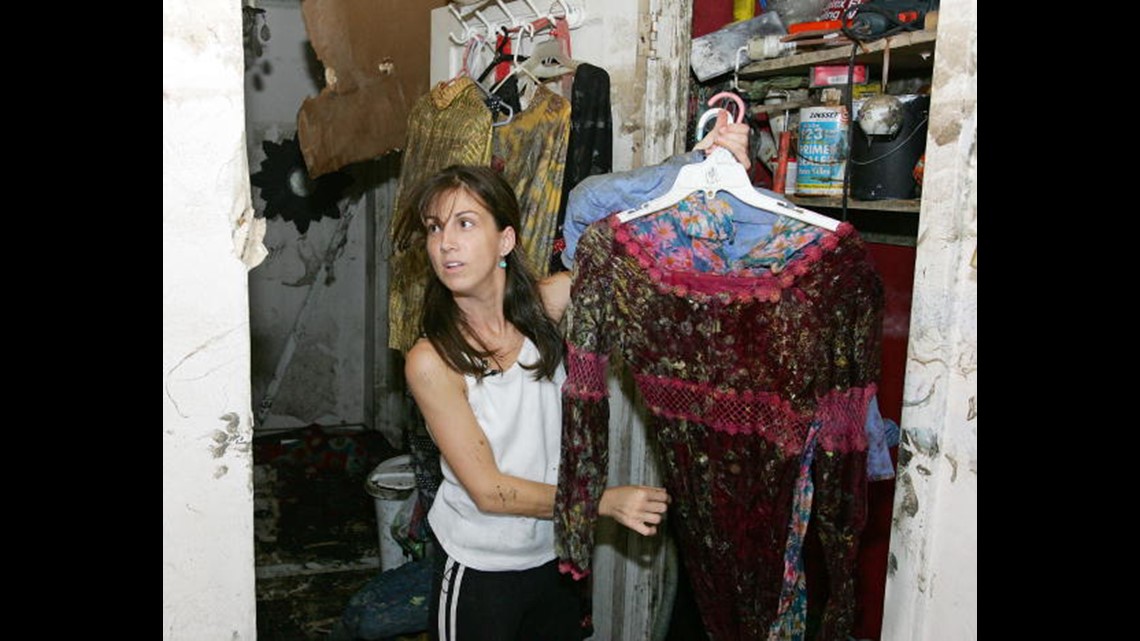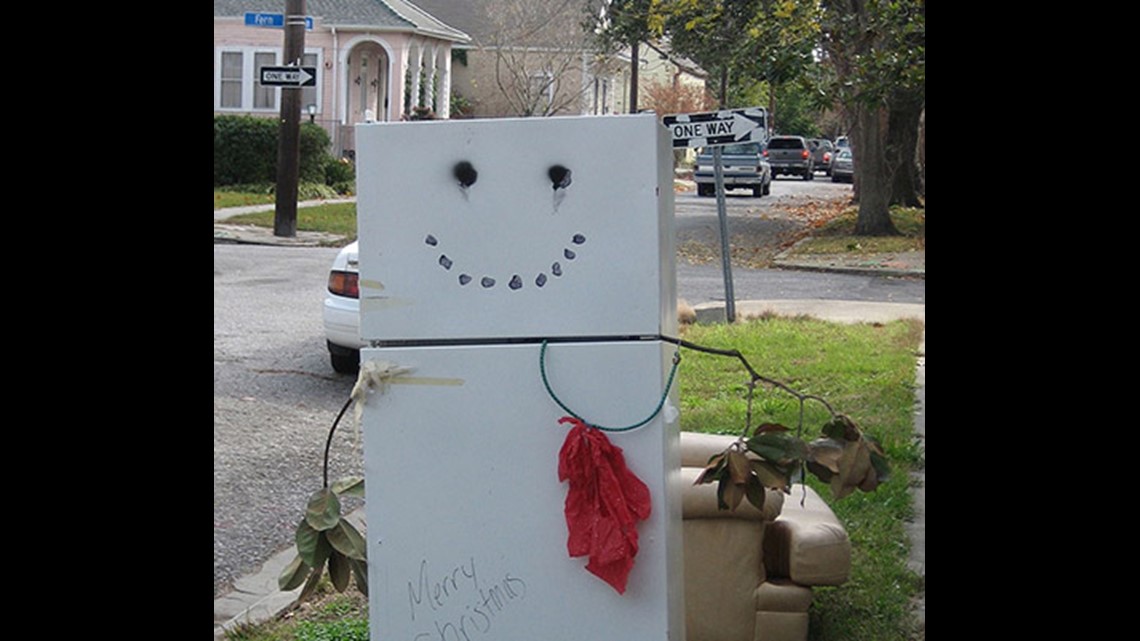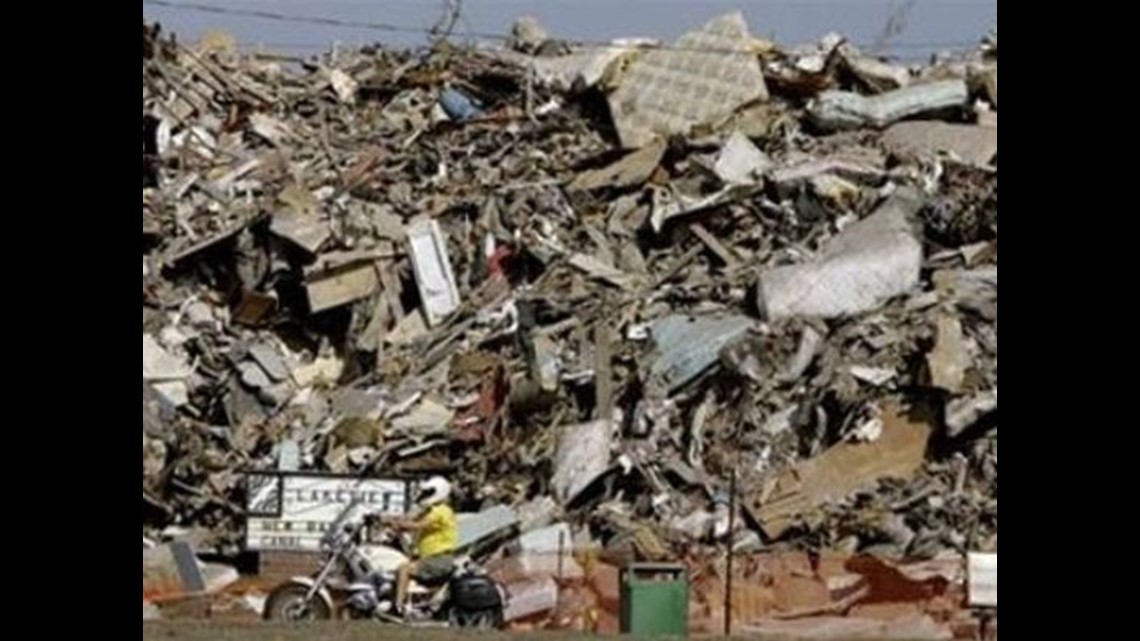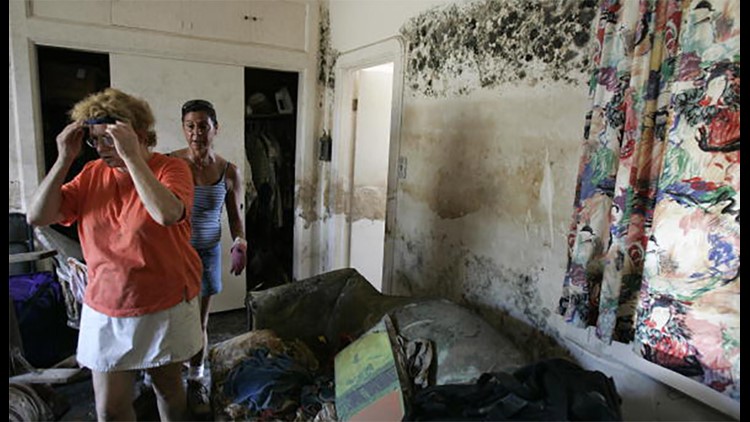As I’ve sat and watched the tragedy unfold in southeast Texas during the past six days, I’ve shed some tears.
It has been uncanny just how similar what is going on there compares to what happened 12 years ago after Hurricane Katrina, and I’m not sure if my emotions are spurred by recollections of what we went through or the knowledge of what you all are going through and are about to go through.
There of course were some differences. Our flooding came thanks to failed levees designed to protect us, while your flooding came from rains of Biblical proportions thanks to a stubborn storm that refused to leave.
How you came to suffer, though, is not as important as the fact that you are suffering and for many the toughest part is yet to come. You’ll be challenged emotionally again and again and again.
Given just how similarly things have unfolded to this point, I thought I would share what you can likely expect next. This is done not to depress anyone, but to help you prepare for what is about to happen. Some of this may not affect you. Mercifully, I hope it doesn’t.
- The most emotional part is yet to happen, unless you’ve lost loved ones or are still searching for them: Right now, you’re likely running on adrenalin. That comes from running for your lives and trying to find a place where you are safe and warm. When you return to your homes, you will find much, if not all, of what you worked to build for you and your families wiped away. Everything will be covered in muck and mold, and you probably won’t know where to start. Your “things” – such as refrigerators, washer and dryers, china cabinets, carpets, favorite chairs -- can be replaced. What cannot be replaced are wedding albums, photos of your children, the special crib you got for your child, the school projects they made, the trophies and awards they’ve won. If you are lucky and have a second floor, some of your things might have been spared, but prepare yourself that much will be lost. The return of family and friends to their homes, sometimes weeks or months later, were some of the most emotional moments after Katrina. Even if you have prepared for the fact that they’re gone, seeing them one more time in ruins will not be easy.


- Speaking of those refrigerators: Open them at your peril. The smell inside -- and I kid you not -- caused many I know to physically wretch. It’s best to pull it out from the wall, wrap it up in duct tape and not open it. Here in New Orleans, the mostly-white refrigerators proved a source of Gallows humor as messages of frustration were spray-painted on them as they sat curbside, often for weeks.


- The trash and debris: You will live with this for a while. Your homes will be gutted. Carpets, sheetrock, those refrigerators, pictures, wood work, cabinets and more will all sit curbside, in some cases for weeks or months. Where will all the debris go? In New Orleans, we all remember a debris mountain in one of the city’s lone areas of untouched green space. Get used to seeing the remnants. It will be a long while before there are any Chamber of Commerce photo. opportunities available.


- You will need to refrain from making emotional decisions: Many life-changing events came out of Katrina. Some came from putting things into proper perspective about what is and is not important in life. There were also friends and colleagues who dated and realized just how important that special someone was to them. There were some marriage proposals and decisions to have a family. Some people swore off living here and moved away. Some of the city’s poorer residents experienced better school systems, better infrastructures and lower crime and decided to stay where they had been welcomed. Others threw in the towel. Some immediately decided to rebuild and sat in new homes for years on blocks where their neighbors' were vacant and there were unkempt lots and rotting homes. Some of those decisions were fantastic; others, not so much. I’m surprised that most everyone I knew that moved away because of Katrina has returned as they realized that the city’s one-of-a-kind charms and idiosyncrasies could not be found elsewhere. Some realized the likelihood of another Katrina happening again was less and less likely to occur thanks to post-storm improvements to the flood-protection system.
- You will find incredible kindness and frustrating callousness: This is already happening. “Why did they stay?” “Why did they build in flood zones?” There will be extremely rude and insensitive comments that are akin to punching someone when they are already down for the count. You may question yourselves and your decisions. You may get angry and fire back. Fortunately, you will also encounter incredible kindness. I, for one, experienced from people in our diaspora-city of Dallas human compassion and empathy I did not know existed. People in my company found fitting schools for my daughters. They arranged a work area for me to write about and cover the storm happening in my hometown. They donated money for my family to get clothes, appliances and other creature comforts for our extended stay. They helped my wife and kids when I returned to New Orleans. In some cases while shopping for school clothes, my wife said that as soon as they mentioned Katrina, the shop’s workers and owners gave deep discounts or vouchers. My brother’s neighborhood in South Lake collected and donated items like TV’s. National media and entertainers held telethons and fundraisers for us! I didn’t realize the depth of human compassion on such a large scale for total strangers. Dwell on that rather than the negatives.
- There will likely be territorial fights: In New Orleans, poorer residents complained of being overlooked for the richer neighborhoods, while some put a racial component on things. There were white people in suburbs who complained that all the attention was given to New Orleans. People actually said that poorer, black neighborhoods were bypassed by helicopters in favor of richer, whiter ones and vice-versa. There will be similar claims in southeast Texas. After the water recedes, which neighborhoods will be rebuilt first? Which infrastructure will be repaired first? Should all neighborhoods – especially some that my friends who live there now say have flooded three times in the past five years – be rebuilt? Which schools will be prioritized for reopening? Will private schools accept children from less-wealthy neighborhoods?
- There will be fights with insurance and for aid: It’s almost certain that the type of money given out to Katrina victims merely by zip codes won’t happen. It’s also almost certain given the realities that these types of events in populous areas – New Orleans, parts of New York, and now Houston – will bring a harsh reality that government cannot financially bear the cost of just funding recovery each and every time. There will be likely more loans than grants. As for insurance, there will be less of the battle over whether the damage in southeast Texas was wind vs. flooding. It was flooding, but there will be more of those battles along the coast. Even where there is no debate that the damage was from flooding, there will be battles with insurance companies. Oh, and add to that the likelihood that you will have a hard time reaching them on those 1-800 lines (I set an alarm for 2 a.m. and called then. Yes, they were manned) and that companies -- even those that bring in hundreds of adjusters – can only get to so many homes so quickly. In fairness, most adjusters will come with open hearts and try to convince the companies to open checkbooks. The latter will be more problematic.
- Finding a contractor to do work in a timely fashion will be a challenge: So will finding a reputable one. Out of towners will set up temporary shop. Many will be well-meaning and will do a good job, but it will often be hard to do background checks on hastily-formed companies or groups. In many cases you’ll have to get your home livable and then live in less than ideal conditions for a while.
- Temporary housing: You can’t live in a shelter forever, but living there for months in some instances will be a reality for many. Some will be put into hotels. Some will live with relatives. And the government may offer trailers to be placed on your property to live in while work goes on in your home. None of the solutions is ideal, but they are what they are. The further you are physically from where work is being done on your home, the harder it is to keep an eye on it.
- Your kids may be going to school in strange, distant or temporary locations: In New Orleans, many kids attended school out of town. Some schools merged. Others put temporary trailers on campus. Some all-girls or all-boys private schools became co-ed. This is especially hard for high school seniors who may be separated from friends and who may have had great plans for that most special of years. Prom, senior seasons in sports, that play they were going to be in, or the band that was going to play at halftimes and march in parades may be gone. Don’t overlook your kids’ emotional needs. They may not do well at expressing it, but many will need a lot of help coping. Seek out the help for them. Take up people on their offers.
- Your job and income: A friend of mine in a Houston suburb says his work had eight feet of water. If you worked for a small company or a restaurant, will you have a job to go back to in the short term? Long term? I was so, so lucky. As a member of the media, we continued to cover the story and had a flow of income. In some cases it was enhanced income as many people worked hours and hours of overtime. Belo Corp. did so well for its employees. Again, you may not be so lucky. You may also want to spend extended time with your family. How many can afford the loss of income?
- Your city’s leisure activities will be questioned: Here in New Orleans, there were plenty of debates over whether the Superdome should be rebuilt or whether Mardi Gras or Jazz Fest should be held. In some cases, these events will provide welcome diversion for those suffering. In an almost divinely-inspired twist of fate, the first seasons at home for both the Saints and Pelicans (then the Hornets) were the best in franchise history to that point and brought smiles to people’s faces. In addition, holding parades and Jazz Fest going on was a signal that we were not going to give up who we were and our way of life. Still, there is the argument that every dollar spent on those things were dollars that weren’t spent on more essential, life-sustaining work. The argument of how any of us could play while others suffered is legitimate and has merits. How do you decide? Remember I talked about not overlooking your children’s emotional needs. The sooner they get back to more normal activities, the sooner they can smile and laugh and cheer again, the better. It’s the same argument for your area as a whole. Maybe the Astros and Texans and Rockets will provide a needed diversion (Ask Chris Paul. He’s about to lead a team in a hurricane-ravaged city again). Maybe that parade will allow your child to forget about woes for awhile. And maybe it will do the same for you. Don’t overlook your emotional needs.
- It will be a marathon, not a sprint: You’ll hear that things won’t be better for five or 10 years and you won’t believe it. Believe it. It’s been 12 years here and there are still some neighborhoods that are not back. There are still big, iconic buildings lying fallow – hulking, rotting remembrances of what happened. Many of the city’s more challenged areas remain in limbo or have been or are in the process of being gentrified. Hard choices have had to be made. Most of them will be questioned or excoriated as they happen. Most won’t prove to be correct or incorrect for years. Do you re-invest in your neighborhood? Will it come back? Or will you be one of a small group of people living between vacant lots or still unrepaired buildings? The first few years were really hard for me. New Orleans is a city of tradition and a lot of it was gone. Included among those things was my grammar school, my church, my sister’s high school and the grammar schools of two of my siblings. One strip mall near me still hasn’t been rebuilt. The lakefront area is improving, but still not what we remember when hundreds of families went there on weekends for recreation. The lakefront restaurants, the long-standing ones – are all gone. There are some new – and very good ones in nearby areas, but it isn’t the same.
There are no easy answers about rebuilding. Everyone is going to have to make the decisions that are best for him or her and his or her particular situation. Move? Stay? Rebuild? Stay but move to a new neighborhood? Is your job still there? Will you get help? Should you rebuild?
My only advice is to take care of your short term needs first. Get stabilized. When that happens, figure out what you want to do long term. Make a plan of where you’d like to go and what you’d like to do.
Whether or not you wanted it, in many cases the slate is wiped clean. Get involved in your community decisions. Don’t just accept what is handed to you. Ask questions. Demand answers. Accept the help of others.
You are likely much stronger than you think. That doesn’t mean you won’t need shoulders to cry on or people to lean on. Help each other. Put aside petty differences. Don’t let what divides you come before what unites you.
We’re “back” here in New Orleans. We aren’t perfect, and the process hasn’t been perfect. Flaws remain here. Actually, flaws is too delicate of a word. It will be messy. It will be frustrating. You will hurt for yourself. You will hurt for others. I won’t sit here and say it will all be alright and, you will never forget this.
It’s why I cried Sunday morning when it became evident that this was going to be similar to what we went through. I cried, partially because it brought back memories I had hoped to bury and I cried because I knew what you were going through and what you would be going through and I know how hard it is.
p>-



